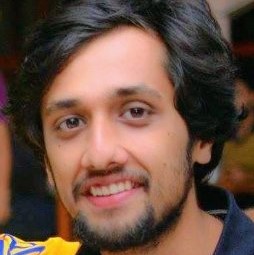Columns
Wisdom of the crowds
The only definite way of gauging the will of the people is through an election.
Sambridh Ghimire
The first time I heard the phrase was in relation to the concept discovered by Francis Galton in 1906. Galton, who was a cousin of the celebrated naturalist Charles Darwin, was observing a contest in an animal fair where the visitors were supposed to guess the exact weight of an ox. The results bewildered Galton as no single individual, including veterinary doctors, naturalists or cattle experts, could guess the ox’s exact weight, but the average of all the estimations was merely a pound over the animal’s actual weight. This was an analogy to a democracy where people from different backgrounds, skills and abilities get a vote, and all these votes together elect a leader who forms the government. He wrote that 'the average competitor was probably as well fitted for making a just estimate of the weight of the ox, as an average voter is of judging the merits of most political issues on which he votes'. After which he did realise the credibility of a democratic judgement system and admitted it to be trustworthy.
One of the greatest philosophers of all time, Aristotle, has said that 'it is possible that the many, though not individually good men, yet when they come together may be better, not individually but collectively, than those who are so, just as public diners to which many contribute are better than those supplied at one man’s cost'.
With the nation in political turmoil, which is a perennial problem of Nepali politics, one often wonders what the solution to this problem might be. The country is at a baffling juncture, where the alliance that was voted to lead the government, that is, the left alliance, has split. The spilt has created opportunities for the opposition, that is, the Nepali Congress. But one should always remember the context in which the elections took place with the left alliance promising development and stability against the highly volatile and unstable governments of the past, this coupled with a few hyper-national sentiments were able to garner a comfortable win for the left alliance.
To reiterate, the left alliance was voted to be in power and the Nepali Congress was (not) voted to be in the opposition. Now that the alliance has been fractured, that does not allow the Nepali Congress to form a government with one of the factions, as that was not something the people had envisioned. A very similar comparison can be drawn with the Indian state of Bihar, where the 2015 election was fought between the Mahagathbandhan alliance comprising of Janata Dal (United) led by Nitish Kumar, Rashtriya Janata Dal led by Lalu Yadav and the Indian National Congress led by Sonia Gandhi and the National Democratic Alliance comprising of the Bharatiya Janata Party and the Lok Janshakti Party led by the late Ram Vilas Paswan.
The Mahagathbandhan alliance was able to get a majority, but the government lasted merely for 18 months after which Nitish Kumar sought the support of the Bharatiya Janata Party and continued his stint as the chief minister. A similar question was raised during that time that whether a leader who fought under a specific alliance could change the alliance without seeking a fresh mandate from the people. As ideologically and morally this seems blatantly wrong and against the very spirit of democracy, there was howsoever no legal obstacle in doing so. But the implications of dissatisfaction were manifested in the Bihar Assembly elections of 2020 in which Janata Dal (United) out of the 115 seats contested only 43 compared to 101 and 71 in 2015. The election also institutionalised the new title of ‘turncoat uncle’ for Nitish Kumar.
Likewise, the Nepali left joining in an alliance with the Nepali Congress is like trying to cure a fracture by joining an ankle to a knee or a hip to a wrist. In other words, it is a complete mismatch and antithetical to democracy as this was not the mandate given by the people in the general elections.
The solution to this problem lies in the title of the article. As renowned political strategist of India Prashant Kishor says, one must always believe in the wisdom of the crowd. At this rendezvous with uncertainty, the only thing that is certain is the will of the people, and the only definite way of gauging it is through an election. All other solutions to this problem might look easier in the short run, but they will have wide repercussions for the parties and institutions in the long run, which will again take Nepal into a vicious cycle of fractured mandates, coalition governments and instability; and history will repeat itself from what happened in the 1990s.
***
What do you think?
Dear reader, we’d like to hear from you. We regularly publish letters to the editor on contemporary issues or direct responses to something the Post has recently published. Please send your letters to [email protected] with "Letter to the Editor" in the subject line. Please include your name, location, and a contact address so one of our editors can reach out to you.




 8.79°C Kathmandu
8.79°C Kathmandu















